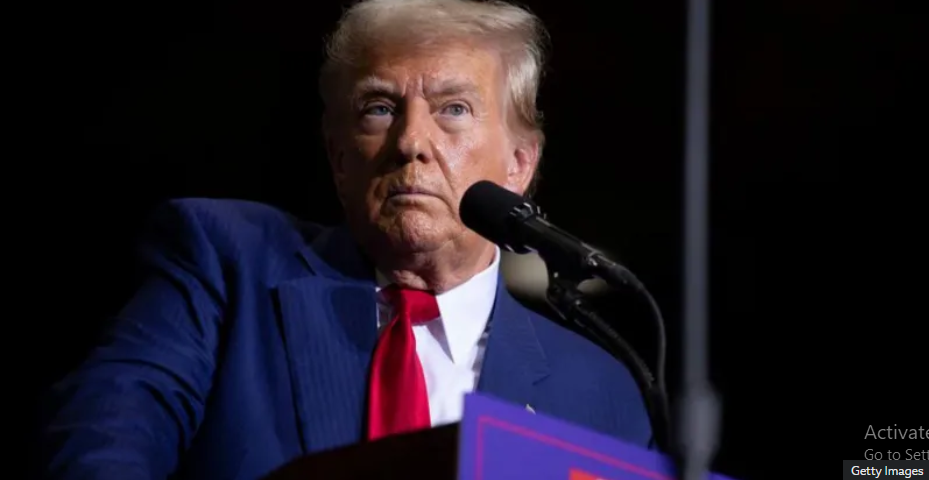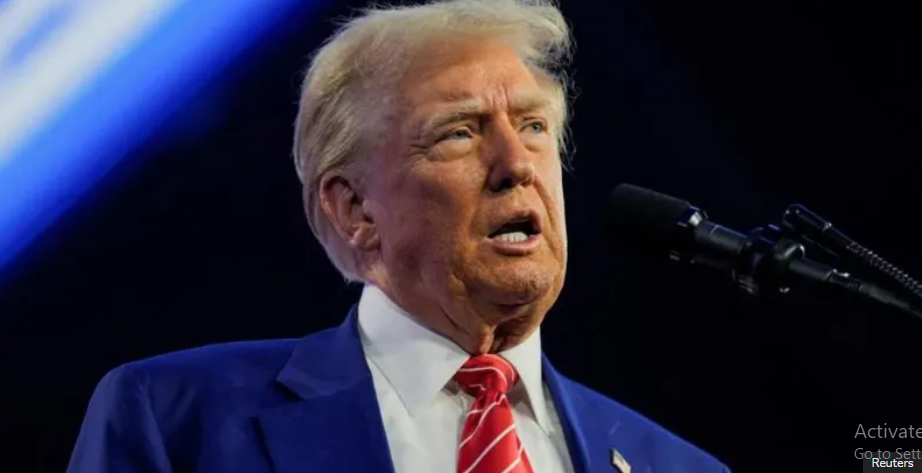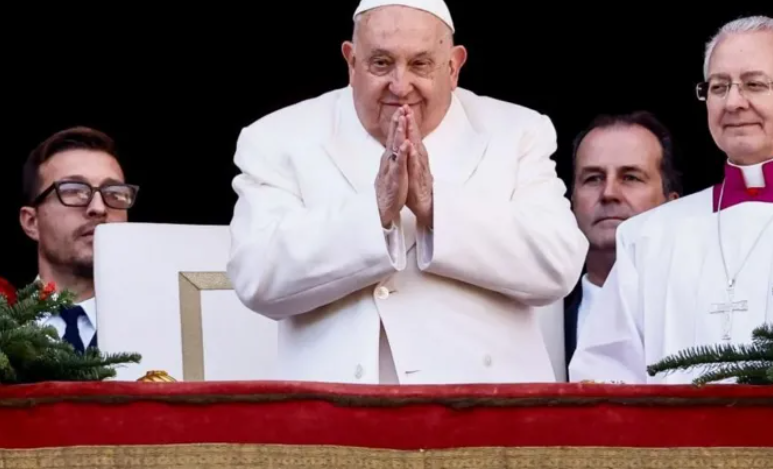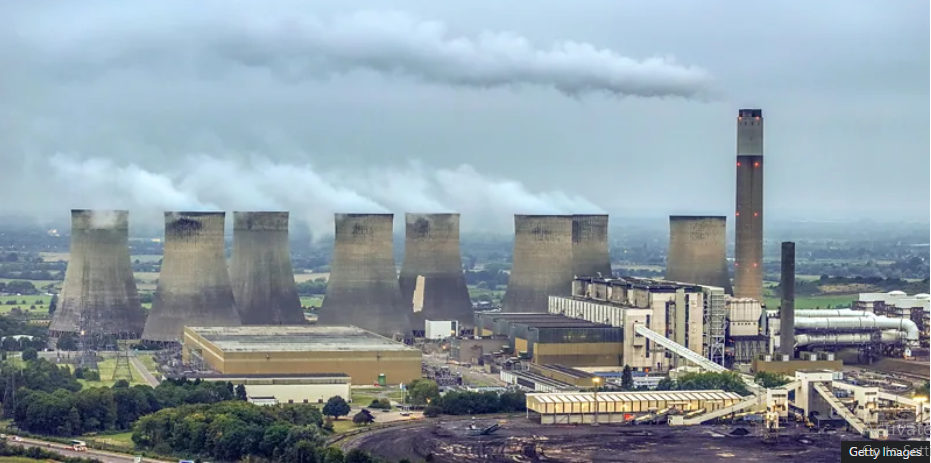The Republican presidential nominee’s decision to vote against the Florida abortion measure comes just one day after he was asked by NBC News how he would vote.

Donald Trump has said he will vote against a ballot measure in his home state of Florida that would protect abortion rights after facing backlash from conservative supporters.
The former president’s announcement came one day after an NBC News interview in which he appeared to support the measure – a statement that caused anti-abortion activists to openly criticise him.
On Friday, Trump told Fox News that he still thinks Florida’s ban on abortions after six weeks is too strict.
However he said would still vote “no” on a measure that would amend the state’s constitution to protect abortion rights.
“You need more time than six weeks,” Trump said. “I’ve disagreed with that right from the early primaries when I heard about it.”
He then falsely alleged that Democrats in the US supported allowing abortions at any point during a pregnancy, which he used as his explanation for deciding to vote against the ballot measure in Florida as a voter in the state.
Abortion laws vary widely in states across the US, but procedures after 21 weeks of pregnancy are rare and are often related to foetal anomalies or threats to the mother’s life, according to the non-profit health organisation KFF.
The Republican presidential nominee’s decision to vote against the Florida abortion measure comes just one day after he was asked by NBC News how he would vote.
“I think the six week is too short,” Trump said in the interview on Thursday. “It has to be more time. I told them that I want more weeks.”
“I am going to be voting that we need more than six weeks,” he said when pressed.
His Democratic opponent, Vice-President Kamala Harris, quickly responded to Trump’s announcement that he would support continuing Florida’s abortion ban as indicative of him continuing his anti-abortion stance.
“Donald Trump just made his position on abortion very clear: He will vote to uphold an abortion ban so extreme it applies before many women even know they are pregnant,” she said in a statement.
Trump’s comments open him to conservative criticism
Thursday’s comments – in which Trump appeared to be open to voting in favour of the constitutional amendment – were heavily criticised by leaders in the anti-abortion movement, which plays a critical role in shaping conservative politics in the US.
“If Donald Trump loses, today is the day he lost,” conservative pundit Erick Erickson wrote on X, formerly Twitter.
“The committed pro-life community could turn a blind eye, in part, to national abortion issues. But for Trump to weigh in on Florida as he did will be a bridge too far for too many.”
Albert Mohler Jr, president of the Southern Baptist Theological Seminary, wrote on X that Trump’s comments on reproductive rights, including on the six-week ban, “seem almost calculated to alienate prolife voters”.
“Pro-life Christian voters are going to have to think clearly, honestly, and soberly about our challenge in this election – starting at the top of the ticket,” he said.
After the Thursday NBC interview, the Trump campaign and his running mate JD Vance made public statements emphasising that the former president had not yet made up his mind on the ballot initiative.
Mr Vance said the former president will “make his own announcement on how he’s going to vote” on the Florida measure that will be based on “his own judgement”.
Trump has criticised Florida’s six-week abortion ban before.
Last September he said Florida Governor Ron DeSantis made a “terrible mistake” signing the ban into law.
Mr DeSantis was challenging the former president in the Republican primary at the time.
What are the abortion laws in US states?
Republicans put abortion disagreements aside at ‘unity’ convention
Abortion is a key issue in 2024 US election
Responding to Trump’s comments, the Harris campaign made clear that they would make abortion rights central to their election effort.
Kevin Munoz, a campaign spokesperson, told reporters that they would continue to frame it around the concept of freedom, a campaign theme: “Kamala Harris is going to fight for your rights. Donald Trump will take them away.”
In 2022, the US Supreme Court struck down the right to abortion nationwide, leaving the decision to states. As a result, Florida banned abortion after six weeks of pregnancy.
The proposed constitutional amendment sought by reproductive rights advocates in Florida does not specify a number of weeks, but would protect abortion access in the state until the point of foetal viability, which is about 23-25 weeks of pregnancy.
As it stands, the state has a near-total ban on abortion, as many women do not know they are pregnant at six weeks.
Opinion polling indicates that a majority of Americans support abortion access.
A July poll from the University of North Florida suggested that 69% of likely voters supported the Florida ballot measure, and 23% opposed it.
The political backlash after the Supreme Court brought an end to Roe v Wade has presented Trump with a political conundrum he has yet to fully solve.
Trump rose to power with the help of the religious right, which broadly supports restrictions on the procedure.
In his first run for president, he pledged to appoint Supreme Court justices who would overturn the constitutional right to abortion in the US.
He kept the promise by appointing three conservative jurists who ultimately voted to overturn Roe v Wade.
Trump has taken the position in his 2024 campaign that abortion policy should be left to individual states, which has put him at odds with many conservatives who seek to restrict the procedure nationwide.
Nevertheless, rank-and-file party members fell in line behind the former president at the Republican National Convention in July.
Further complicating Trump’s standing is his new proposal to make the government or insurance companies pay for in-vitro fertilisation (IVF).
Some anti-abortion and religious groups object to IVF due to its use of embryos.
















